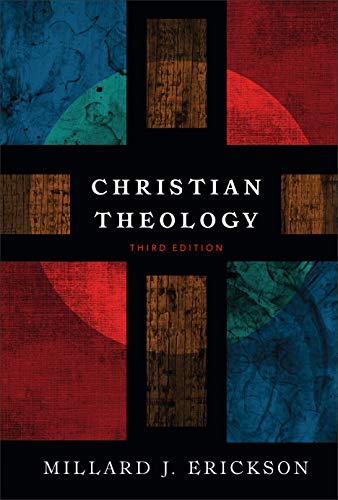
Quotes by Millard Erickson
The following principles of leadership emerge from biblical teaching:
1. Christian leaders should be certain that their goal is to serve God and others, not to receive the title or honor that comes with leadership.
2. Leaders should not use their position for their own advantage or comfort. No task should be “beneath” them – although some tasks may be delegated. They should not ask others to do what they are unwilling to do themselves.
3. Leaders will seek to distinguish their own preferences from the will and welfare of the group as a whole.
4. Normally the position should seek the leader. There may be some situations in which persons may apply or volunteer. Nevertheless, when someone strongly desires a particular responsibility, his or her motivation should be carefully examined.
5. We must learn to see each other as valuable to the Lord and basically equal in his sight.
Conversion is a single entity that has two distinguishable but inseparable aspects: repentance and faith. Repentance is the unbeliever’s turning away from sin, and faith is his or her turning to Christ. They are, respectively, the negative and positive aspect of the same occurrence.
Christian Theology, Baker, 1998, p. 946. Get this book!
Sin is not merely wrong acts and thoughts, but sinfulness as well, an inherent inner disposition inclining us to wrong acts and thoughts. We are not simply sinners because we sin; we sin because we are sinners.
Christian Theology, Baker, 1998, p. 596. Get this book!
We must distinguish between two different senses of God’s will, which we will refer to as God’s "wish" (will-1) and God’s "will" (will-2). The former is God’s general intention, the values with which He is pleased. The latter is God’s specific intention in a given situation, what He decides will actually occur.
Christian Theology, Baker, 1998. Get this book!
We should observe that God does not send anyone to hell. He desires that none should perish (2 Pet. 3:9). God created humans to have fellowship with Him and provided the means by which they can have that fellowship. It is a human’s choice to experience to agony of hell. His or her own sin sends the person there, and his or her rejection of the benefits of Christ’s death prevents escape. As C.S. Lewis has put it, sin is the human being saying to God throughout life, “Go away and leave me alone.” Hell is God’s finally saying to the human, “You may have your wish.”
Christian Theology, Baker, 1998. Get this book!
In the past, God had left sins unpunished. He could conceivably be accused of overlooking sin since He had not required punishment for it. Now, however, He has put forth Jesus. This proves that God is just (His wrath required the sacrifice) and that He is the justifier of those who have faith in Jesus (His love provided the sacrifice for them).
Christian Theology, Baker, 1998, p. 828. Get this book!
For the type of human nature that each of us possesses is not pure human nature. The true humanity created by God has in our case been corrupted and spoiled. There have only been three pure human beings: Adam and Eve (before the fall), and Jesus. All the rest of us are but broken, corrupted versions of humanity. Jesus is not only as human as we are; He is more human. Our humanity is not a standard by which we are to measure His. His humanity, true and unadulterated, is the standard by which we are to be measured.
Christian Theology, Baker, 1998. Get this book!

